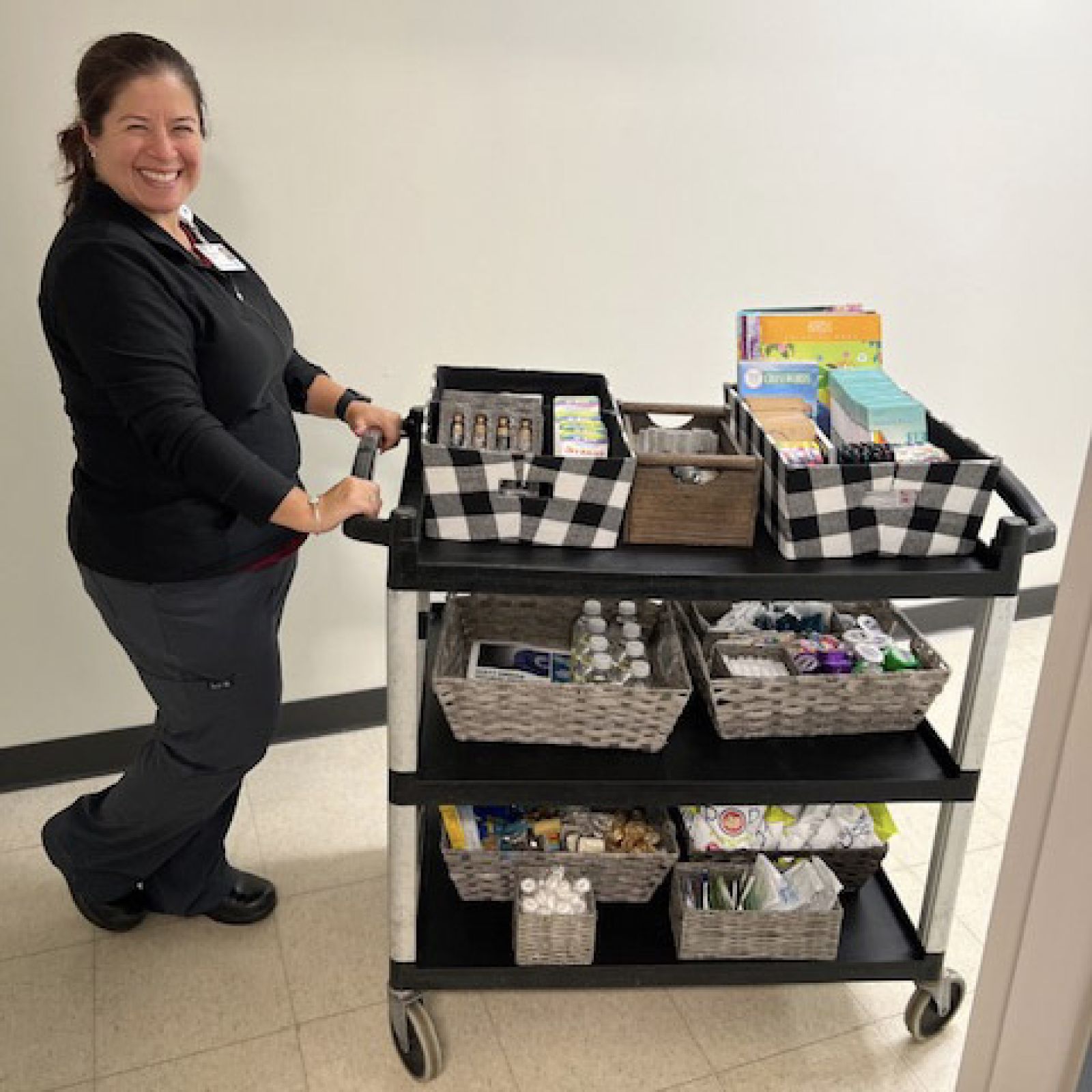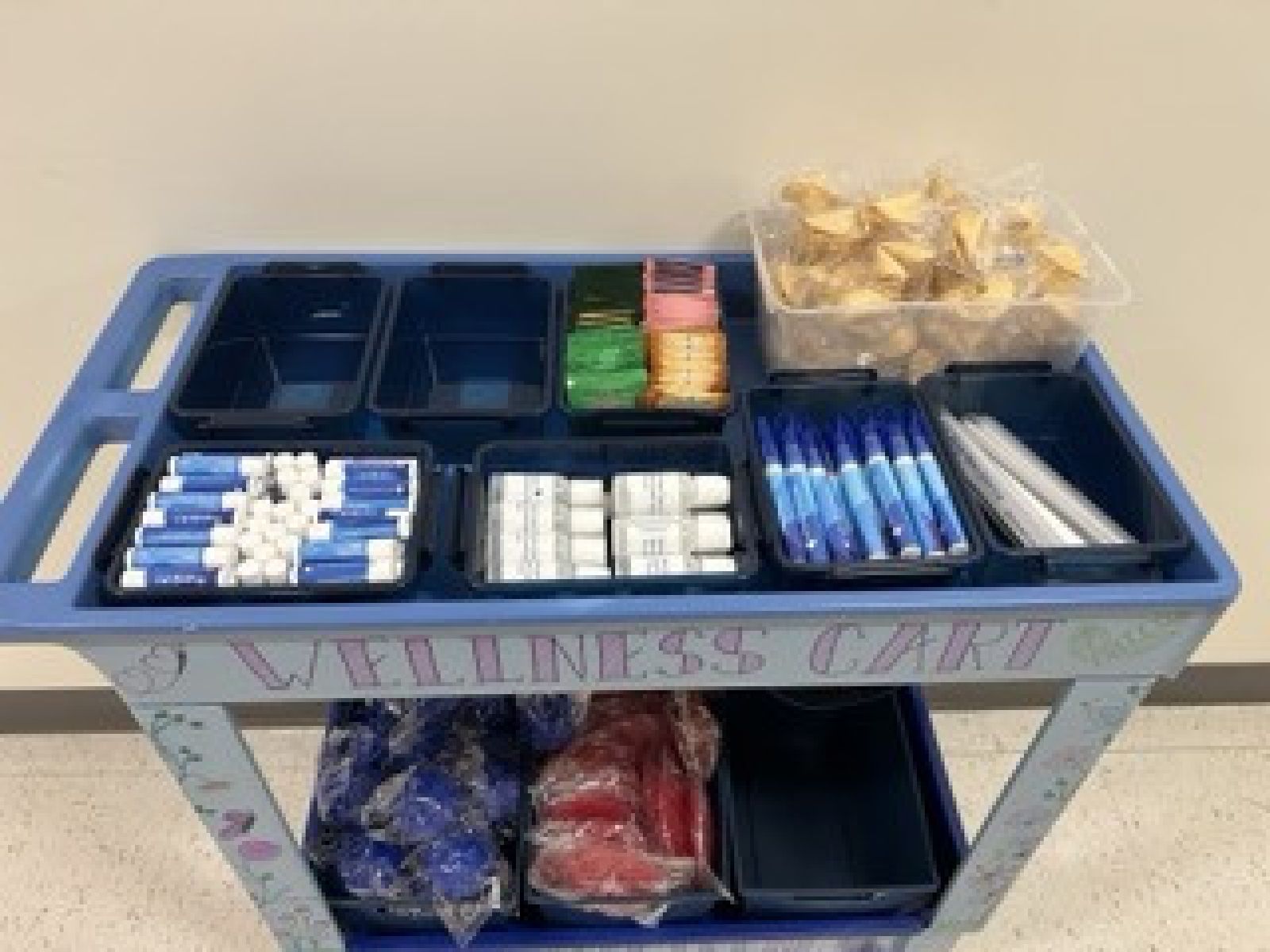Support Report
September 10, 2025
Promoting peer support through wellness carts at Beth Israel Lahey Health

Photo courtesy Lahey Hospital & Medical Center
What originated as a joyful stop to break up a stressful workday for staff has evolved into a powerful tool for promoting wellness initiatives across the Beth Israel Lahey Health (BILH) system. Wellness carts – once a simple source for comfort and treats – are now being used as a unique and effective way to promote programs like peer support.
Molly Crane serves as the wellness program manager for BILH on behalf of Point32Health. In this role, she collaborates with hospitals in the system to design customized wellness offerings for staff. One initiative she has expanded in the last two years is the use of wellness carts, now present at Beth Israel Deaconess Medical Center, BID-Plymouth, BID-Milton, BID-Needham, Lahey Hospital & Medical Center, Exeter Hospital and Winchester Hospital.
These carts, often decorated to be eye-catching and inviting, provide more than just candies, tea, stress balls and sunscreen. They also serve as platforms to promote important resources available to staff, including peer support programs. “Each time they go around they might bring a different flyer to raise awareness about a wellness program that’s going on,” Molly explains. “That’s relatively new.” The carts travel around the hospital on a schedule to ensure they’re able to make it to each department. They will also travel to specific departments or clinics when there is a need.
For organizations interested in bringing carts or similar offerings to their hospitals, Molly shared some key considerations for before and during implementation.
- Take a tailored approach. The cart initiative is not a one-size fits all. Molly emphasized the importance of understanding the unique culture of each hospital. For this reason, some hospitals had carts operated by leadership staff, while others were run by volunteers or wellness champions.
- Stand out. Some hospitals have given their carts fun or catchy names. This has helped to bring recognition amongst staff.
- Incorporate philanthropy. Some hospitals have included small gifts or incentives. For example, one hospital periodically will distribute gift cards to staff via the cart to maintain interest and popularity.
- Stay consistent with core principles. All the carts aim to promote emotional, mental and physical wellness. Molly shares that they have found success in rotating the programs they promote – employee assistance, peer support, and other internal offerings – but at the same time, keeping popular items stocked and the cart on a schedule helps streamline operations and maintains engagement.

Photo courtesy Beth Israel Deaconess Hospital–Plymouth
While the use of the carts in each hospital varies, they consistently prove to be very effective. Their success stems from an understanding of each hospital’s culture and what the staff genuinely values. Ultimately, Molly says the carts create “an opportunity [for staff] to take a moment for themselves, in a place where they’re often taking care of other people.”
For hospitals interested in using wellness carts or other promotional tools to share information about the Virtual Peer Support Program, our communications toolkit can be found here.
To request printed materials, please contact Peer.Support@BetsyLehmanCenterMA.gov.